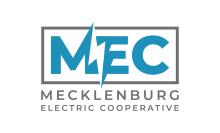Mecklenburg Co-Op Celebrates 7,500 Fiber Customer Milestone
Empower Broadband, a wholly-owned subsidiary of Virginia-based Mecklenburg Electrical Cooperative, says it has successfully deployed affordable fiber access to more than 7,500 subscribers across long-neglected and underserved portions of the Old Dominion state.
Mecklenburg Coop, created in 1938, serves 31,000 residential and business electrical customers across portions of nine Southside Virginia counties and five northern North Carolina counties. Like many cooperatives, Mecklenburg and Empower are leveraging generations-old experiences at rural electrification to migrate into the broadband business.
In 2022, the coop broke ground on a $154 million initiative to bring high-speed internet to 14,634 unserved and underserved locations in Halifax, Mecklenburg, and the southern portions of Charlotte and Brunswick counties. As of today, the Mecklenburg fiber network consists of 2,900 miles of fiber and passes by 23,443 locations, with additional expansion planned.


